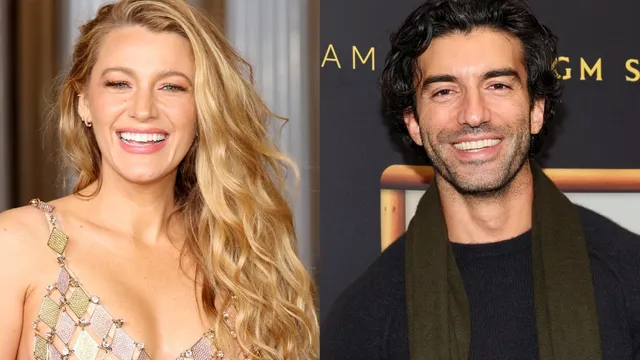
Blake Lively prepares to present witnesses against Justin Baldoni
2025-02-22 19:33- Blake Lively filed a lawsuit against Justin Baldoni in December 2023, alleging sexual harassment and emotional distress.
- An amended complaint includes details that additional unnamed witnesses are willing to testify regarding Baldoni's alleged misconduct.
- The case has generated significant media attention, raising concerns about workplace conduct in the film industry.
Express your sentiment!
Insights
In December 2023, Blake Lively filed a lawsuit against Justin Baldoni, claiming sexual harassment on the set of the film 'It Ends With Us' and citing severe emotional distress. Following her initial claims, Lively's legal team submitted an amended complaint indicating that there are other unnamed women willing to testify regarding Baldoni's alleged misconduct. The amended complaint aims to demonstrate a pattern of behavior and retaliation against Lively and others who raised concerns about Baldoni's actions. Lively maintained that the complaints had been documented prior to the filing and that Baldoni acknowledged some issues in writing. The legal proceedings escalated when a New York federal judge scheduled a trial for March 2026, prompting both parties to prepare for the upcoming court dates. In response to the lawsuit, Justin Baldoni filed a counter-lawsuit against Lively and her husband, Ryan Reynolds, demanding $400 million for allegedly conspiring to damage his career and reputation. Baldoni's denial of the allegations has been strong, asserting that the accusations are categorically false and a direct result of a smear campaign orchestrated by Lively and her associates. While both sides continue to prepare for trial, Lively’s allegations include claims of a retaliatory campaign fueled by Baldoni’s camp. The amended complaint refers to a threatening climate and harassment that not only affected Lively but also other women on set, who expressed their discomfort with Baldoni’s behavior. It was mentioned that one female cast member reported these concerns to a Sony employee, who then relayed them to Baldoni, who acknowledged the matter. Lively’s lawsuits have sparked social media discussions about workplace misconduct and the power dynamics experienced in the film industry. As both parties proceed through this litigation, the outcome could have significant implications not only for the individuals involved but also for broader conversations surrounding sexual harassment in entertainment. In particular, Lively highlights that she is not alone in her experiences, suggesting a more pervasive issue within Hollywood that needs to be addressed. As the legal battle continues, new developments may further influence public perceptions and industry standards around harassment and workplace accountability.
Contexts
The issue of sexual harassment in Hollywood has garnered significant attention over recent years, particularly as part of the broader #MeToo movement that began to take shape in late 2017. This movement catalyzed a shift in societal attitudes towards sexual misconduct within the entertainment industry, prompting survivors to share their experiences and seek accountability from powerful figures. High-profile cases, such as those involving producers like Harvey Weinstein, have not only highlighted systemic abuse but also the culture of silence that has historically allowed such behavior to flourish. The revelations surrounding these incidents have led to a collective reckoning, amplifying discussions about consent, power dynamics, and the need for lasting change in Hollywood's work environments. In response to the outcry from victims and the public, many industry organizations have taken steps to address sexual harassment. Initiatives such as the Time's Up movement were established to create safer workplace environments and to support survivors in seeking legal recourse. Additionally, various production companies and studios have implemented stricter policies and guidelines regarding workplace conduct. Training programs designed to educate employees about harassment and support systems have been introduced, reflecting a shift towards accountability. However, the implementation of these changes has been uneven, with critics arguing that many organizations fail to fully address the underlying issues. Moreover, the legal landscape surrounding sexual harassment cases has evolved as victims feel emboldened to pursue justice. Legislative changes and increased media coverage have encouraged a more rigorous examination of workplace rights. Yet, barriers still remain, including concerns about retaliation and the pervasive stigma surrounding the reporting of such incidents. Many individuals in Hollywood, particularly women and marginalized groups, continue to face systemic challenges when navigating their careers while confronting harassment. The progress made since the #MeToo movement began is commendable, yet there is an urgent need for continuous evaluation of policies and practices to ensure meaningful protections for all individuals in the industry. As we move forward, the importance of fostering a culture of respect and accountability in Hollywood cannot be overstated. It requires a multi-faceted approach that includes ongoing education, supportive resources for victims, and proactive measures against perpetrators. Both industry leaders and grassroots advocates must work together to cultivate an environment where every individual feels safe and empowered to express themselves without fear of harassment. The ongoing discourse surrounding this issue serves as a reminder that while substantial strides have been made, the fight against sexual harassment is far from over, necessitating vigilance and sustained commitment to transformation.